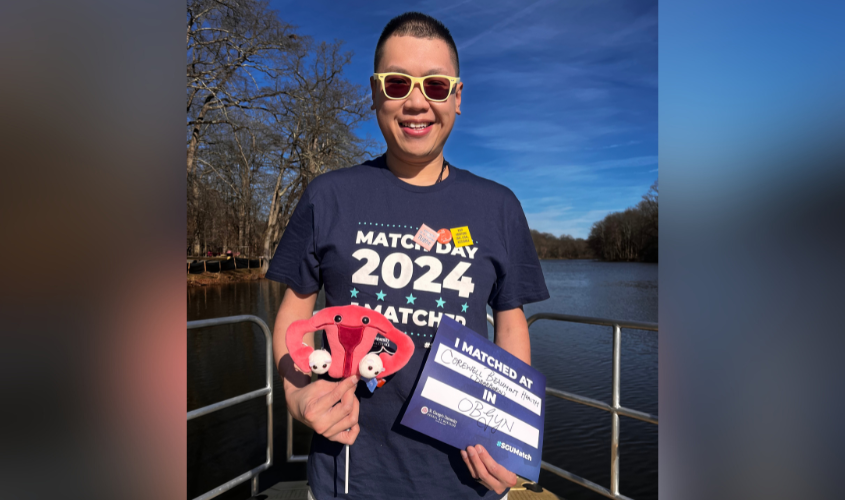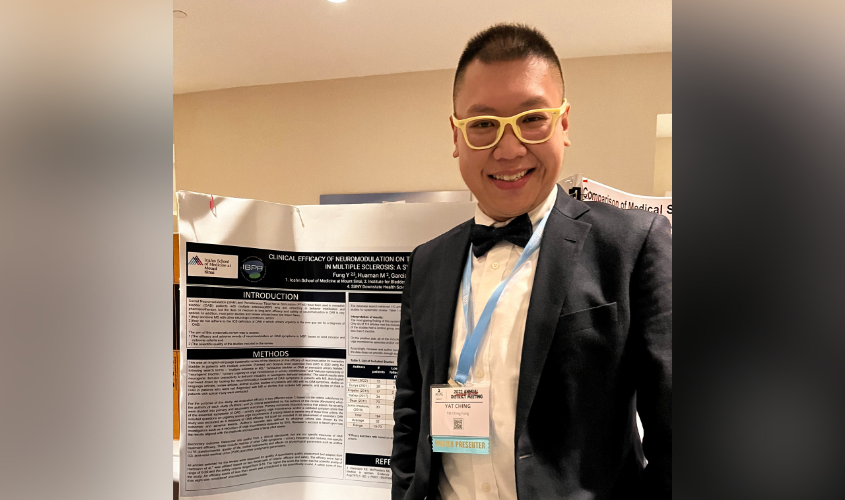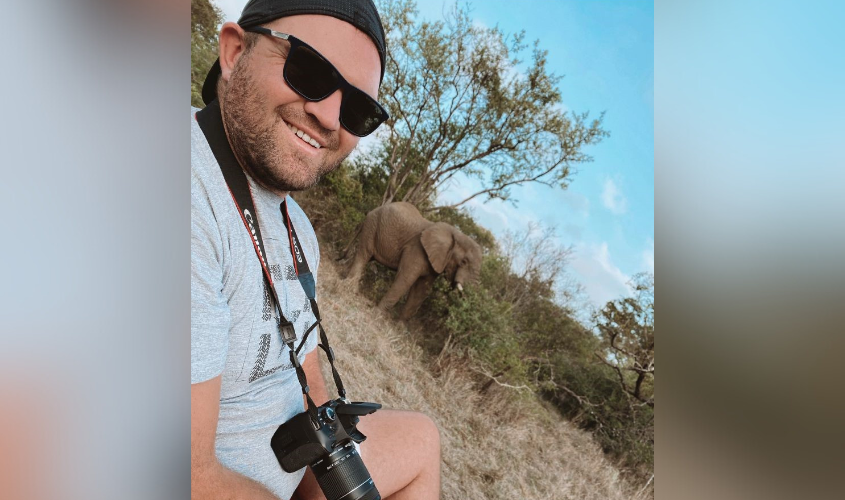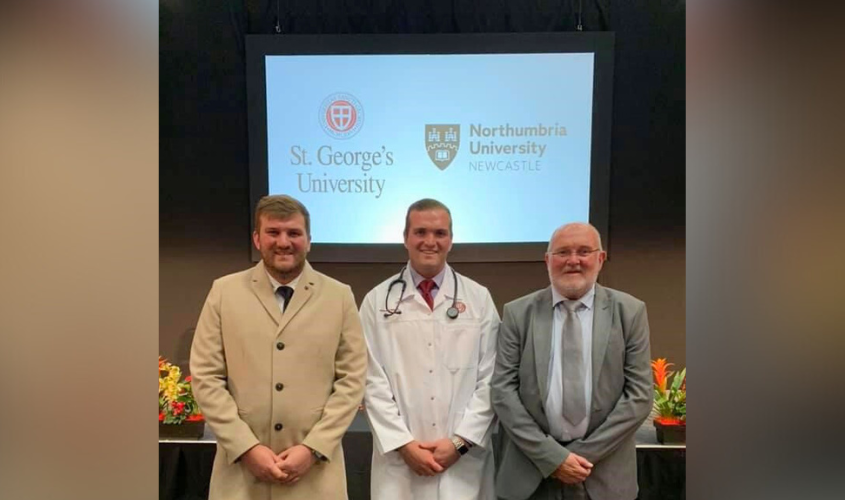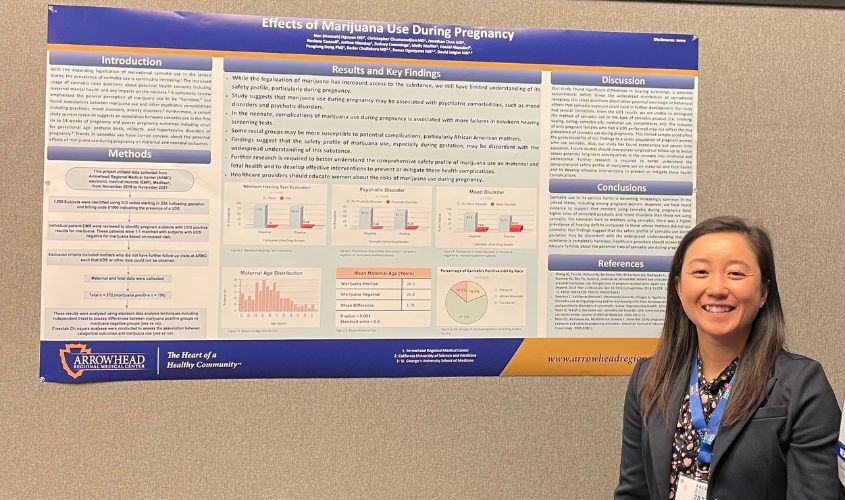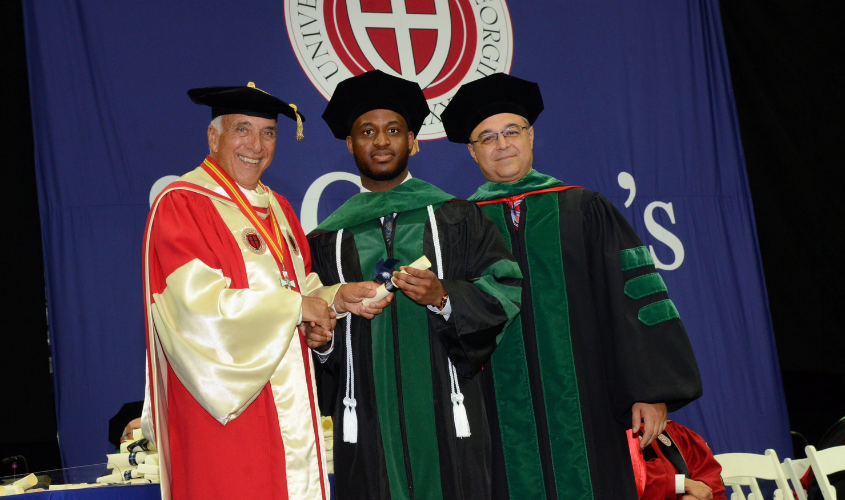Andrea Pakula, MD, MPH
St. George’s University School of Medicine alum Andrea Pakula, MD ’07, MPH ’03, is passionate about her career in surgery—particularly the ability to use the newest and most advanced technology to help patients get back to living their lives as quickly as possible.
As the medical director of robotic surgery at Adventist Health Simi Valley Hospital, Dr. Pakula performs surgeries and procedures entirely with the Intuitive Surgical da Vinci Robotic platform, including emergency surgery. In 2024, she was one of the first surgeons in the country to use the da Vinci 5—the newest and most advanced generation of surgical robots in its field. The milestone was covered in a local Los Angeles-area news article.
Staying on the cutting edge of technology in the field of robotic surgery allowed Dr. Pakula to cultivate her love for surgery and critical care.
“My favorite part of the job is being able to treat and help patients get back to their lives in the fastest, most painless way possible,” she said. “I truly enjoy my patients and being able to take part in their care.”
SGU News sat down with Dr. Pakula to learn more about her career and journey to become a doctor.
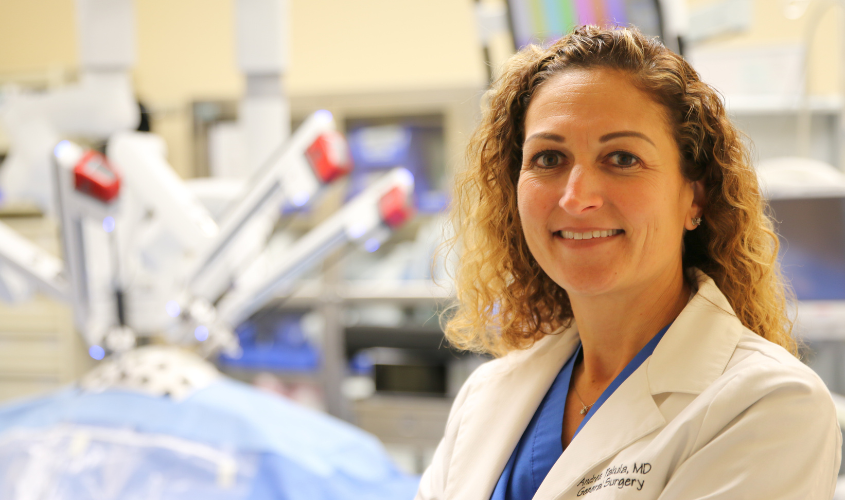
SGU: What kind of medicine and procedure do you specialize in?
Dr. Pakula: I am double boarded in general surgery and surgical critical care. I do all aspects of general surgery including bariatric, foregut, and colon surgery. I also have expertise in complex hernia repair. My entire practice is robotic including my emergency surgery practice.
SGU: How does the da Vinci 5 benefit patients? What does this technology mean for healthcare in general?
Dr. Pakula: The da Vinci 5 is the newest and most advanced generation of surgical robots which allows the surgeon more precision when operating. We are able to perform complex operations through only a few small incisions which allows for much faster recovery and return to normal activity for patients without the need for pain medications.
SGU: How did you get into robotic surgery?
Dr. Pakula: A few years into practice, I trained on the da Vinci Xi Robot and began to apply robotic assisted laparoscopic surgery to all areas of my practice. I started to be very involved in the various surgical societies and hernia societies and began speaking and teaching robotic surgery all over the country.
In 2018, I moved down to Southern California and was recruited to Adventist Health Simi Valley to build a robotic surgery program. We achieved a Robotic Center of Excellence designation administered by the Surgical Review Corporation (SRC), which is a nonprofit specializing in patient safety. We continue to lead within our health system, as I still teach and speak internationally about hernia and robotic surgery and have a busy elective practice treating patients with minimally invasive surgery.
SGU: Can you share more about your career path? What was your journey from med student to your current position?
Dr. Pakula: I first received my Master of Public Health at St. George’s University and then began medical school. After completing my first two years at SGU, I completed my third and fourth clinical years at Kern Medical Center in Bakersfield, CA. It was during my time there that I began to have a strong interest in general surgery. I was then accepted into the general surgery residency program there. It was a very busy trauma center, and so I became very interested in trauma and surgical critical care.
After residency, I went on to complete a surgical critical care fellowship at the Mayo Clinic in Rochester, MN. From there, I returned to California and started practice at Kern Medical Center as an attending faculty surgeon. I was the associate medical director of the ICU and the medical director of bariatric surgery at Kern around the time I began expanding my interest in complex hernia repair and abdominal wall reconstruction.
SGU: Why did you choose SGU?
Dr. Pakula: Considering that I have always wanted to be a doctor and I did not initially get into medical school in the US, the opportunity SGU gave me allowed me to really focus on what was important—doing well in school to get into a good surgery residency.
SGU: How did your med school training at SGU help you get to your position today?
Dr. Pakula: The education I received at SGU allowed me to get into one of the best fellowships in the country, and that drive has stayed with me to be able to excel in my career.
